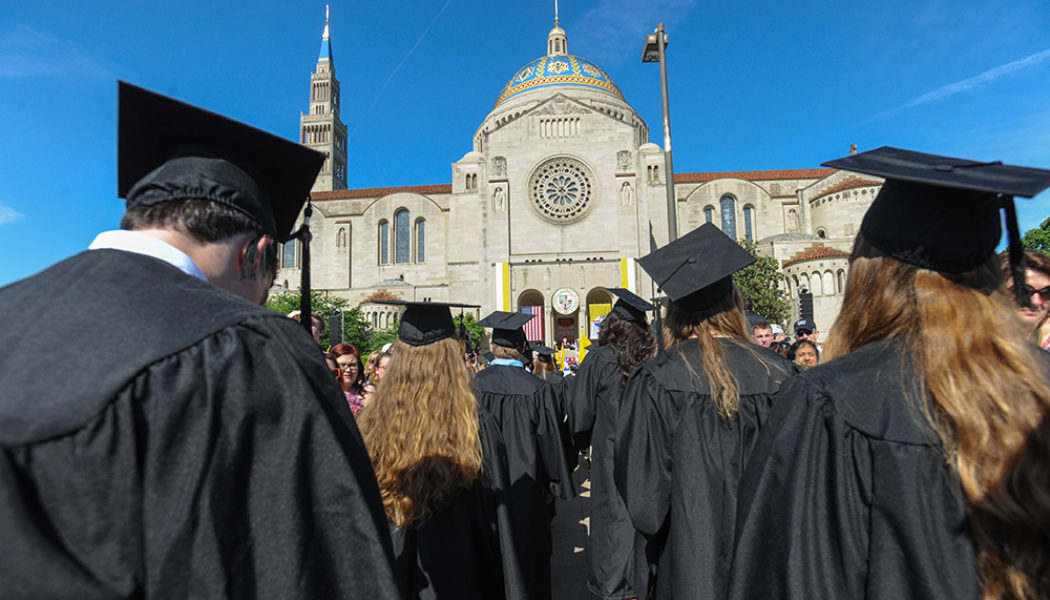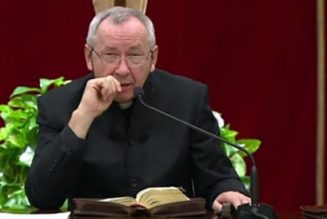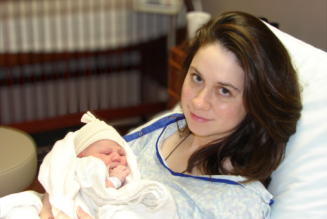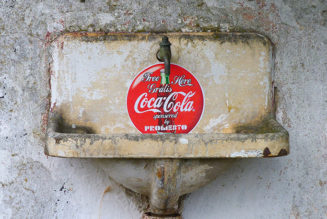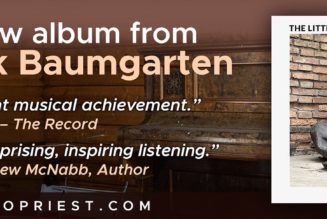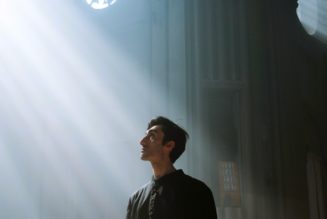
Graduates line up outside the Basilica of the National Shrine of the Immaculate Conception in Washington during The Catholic University of America’s annual commencement in 2016. (CNS/Dana Rene Bowler, CUA)
I didn’t go to my college commencement ceremony. I graduated in three years and had my diploma delivered by messenger to the office National Review then had on Capitol Hill. So, imagine my shock when a few days after my birthday this year in late March, I received a note from a staffer at the president’s office at the same school. It said that I was being granted an honorary doctorate from The Catholic University of America.
People who do public things do get honorary degrees. It’s always something to be humbled by. If any other school had sent me a similar letter, though, I would not have been absolutely flabbergasted. It would have been an immense privilege, but not near impossible for me to believe. If you told 20-year-old Kathryn that this would happen, she would have been saddened by your cruel humor. And yet, on the feast of Our Lady of Fatima 2023, it did, in fact, happen.
You see, I got kicked out of a dorm when I was an undergrad there. It was after a long fall semester of controversy. It started when I was working on student orientation and the president of the university at the time spoke to us before the freshmen arrived. I was already in the habit of taking notes whenever anyone talked. Why? To remember. And, yes, I worked on the college paper freshman year, had written at least one published secular op-ed, and knew that when interesting things happen, it’s often good to share. I also brought a tape recorder along for safety. Little did I expect some explosive material from the president — about the cardinals who traditionally serve on the board of CUA and about gay and lesbian and abortion groups on campus.
When that became national Catholic news in a midwestern paper known for watchdogging excesses on the left (for lack of a better way to put it), this was the end of any semblance of a normal college experience for me. (I had also become an undergraduate columnist for the law school paper, which got shut down for editorializing against the absence of crucifixes on classroom walls in the new law-school building.) But, goodness, did I learn a lot from it! I had some excellent philosophy and political philosophy classes at Catholic University. But there is nothing like the lived experience of an unexpected battle that is in your dorm hallways, student newspaper editorials and occasional comments from a religion teacher who happened to be a priest. And it all brought me to the most important place: praying — and crying — in front of the Blessed Sacrament.
The situation escalated after the president visited the residential college I was living in. Again, I was very obviously taking notes at an event that was well-advertised, albeit just to those living in the building. Looking back at notes from the time, I had long forgotten just how bad it had gotten. The president himself was making snide comments about not just the cardinals but me, a sophomore sitting in front of him taking notes.
The dorm leadership would soon move to punish me with an official reprimand, which was the beginning of the message that I had to leave for disturbing the community, which was my last campus act before Christmas, to move across campus. There was a whole lot of other drama, but the important thing is that this is a story of redemption and reconciliation.
The Catholic University never succumbed to some of the evil that other institutions did, but it fell under the influence of some of the confusions of the sexual revolution and misinterpretations of the Second Vatican Council. And in subsequent administrations, the Catholicism of the place has been emphasized. It has been a motivation in hiring. Virtue is a big part of the witness and instruction to students. Today, it is a place worthy of its name.
As the current president, Peter Kilpatrick, handed me my honorary doctorate in humane letters, he said: “We’re so proud of you.” That healed a wound I didn’t know still needed to be healed.
My first commencement (this year!) was a truly beautiful weekend in so many ways. My favorite part, though, came the next morning in a private Mass in a house of formation I spent much time at as an undergraduate. Two priest friends — one of them a classmate from the time — offered Mass for the repose of the soul of that president from my time at CUA. Loving prayer is the most important thing. Forever and always.
Kathryn Jean Lopez is a senior fellow at the National Review Institute and editor-at-large of National Review.
